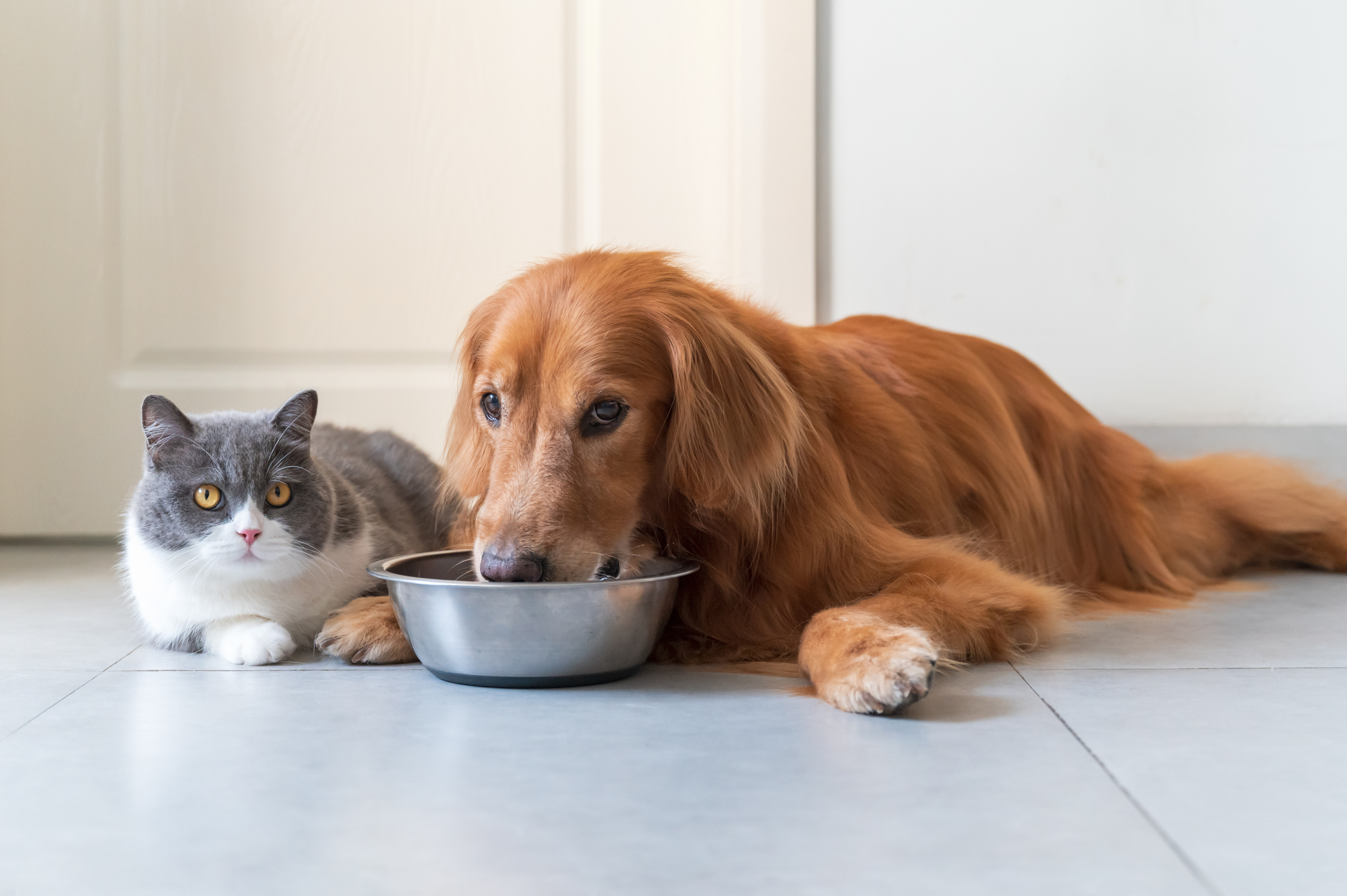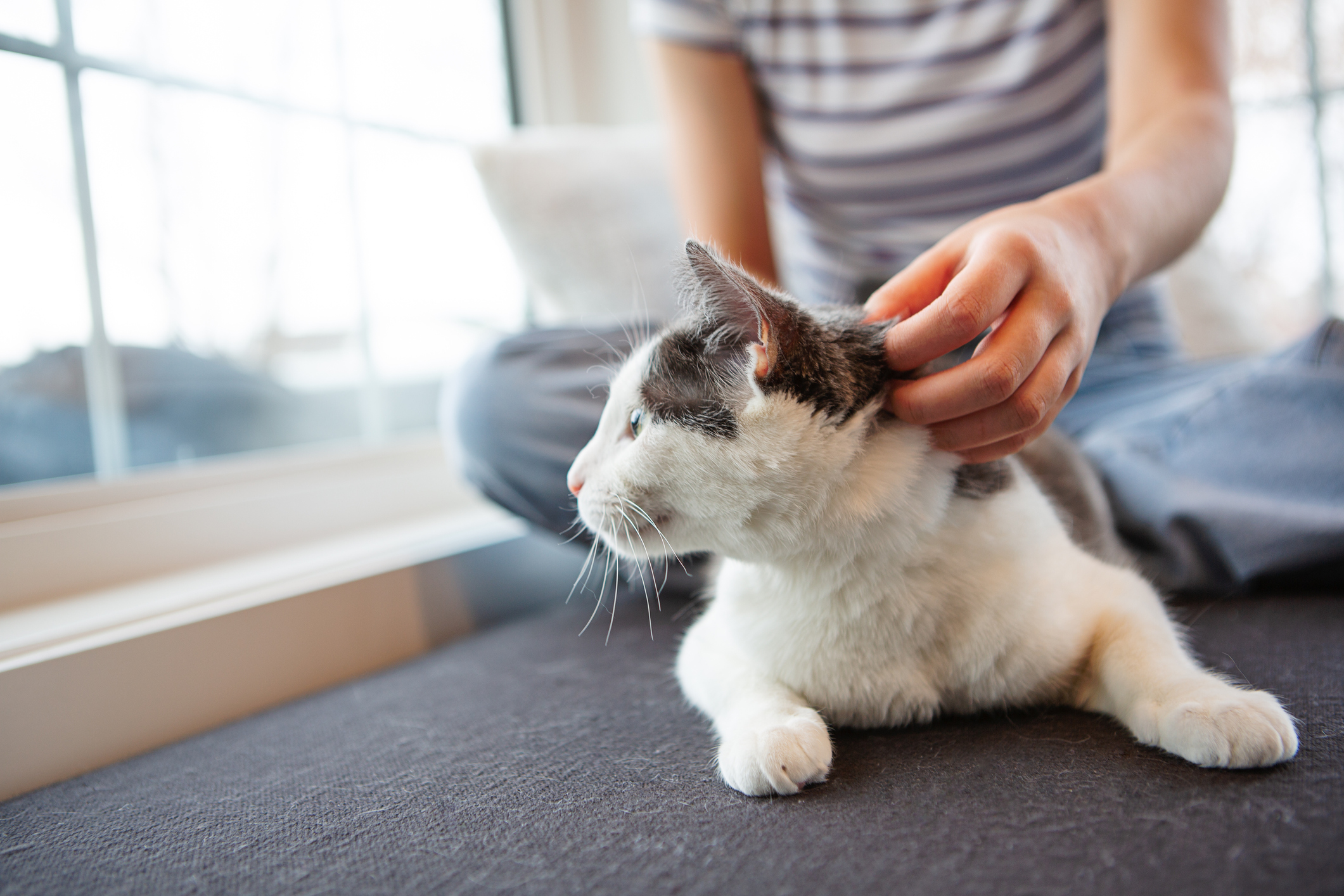5 Warning Signs of Dehydration in Pets
Doctor of Veterinary Medicine

While efforts are made to answer all questions as quickly as possible, if an immediate answer is required or if your pet is in need of urgent or emergency care, contact your pet's veterinarian immediately.
Doctor of Veterinary Medicine

You will receive an answer from Dr. Lindsay and our vet/tech team as soon as possible, usually the same day.
All answers are provided for informational or educational purposes only, and are intended to be a supplement to, and not a substitute for, the expertise and professional judgment of your pet's veterinarian.
It may be necessary to consult your pet's veterinarian regarding the applicability of any opinions or recommendations with respect to your pet's symptoms or medical condition.
CloseDoctor of Veterinary Medicine

An error has occurred, please reload the page and try again.
CloseDoctor of Veterinary Medicine

While efforts are made to answer all questions as quickly as possible, if an immediate answer is required or if your pet is in need of urgent or emergency care, contact your pet's veterinarian immediately.
There is no answer related to your question

Just like people, dogs and cats don’t always drink enough water. Warm weather and intense exercise can leave pets at risk for dehydration, as can fluid loss from illness. In honor of National Pet Hydration Awareness Month, learn what signs can indicate dehydration in pets and what you can do to keep your pet hydrated and healthy.
What Exactly is Dehydration in Pets?
The most common type of dehydration in both people and pets is called isotonic dehydration. In pets experiencing isotonic dehydration, the body loses water and electrolytes at a faster rate than they are replenished.
Water and electrolytes play a crucial role in various bodily processes, including digestion, temperature regulation, brain function, and muscle activity. Fluid intake also helps regulate the body's blood volume.
Top 5 Signs of Dehydration in Pets
When the body becomes dehydrated, it tries to conserve water to maintain essential bodily functions and blood volume. Water is drawn from inside cells into the bloodstream, leading to fluid loss from the skin, large intestine, lungs, and kidneys. These changes manifest as visible symptoms of dehydration in pets, which include:
1. Loss of skin elasticity

Performing a “skin tent test” is an easy way to test your pet for dehydration. Gently pinch their skin at the scruff of their neck to “tent.” Hydrated skin has good elasticity. It will hold its shape and quickly “spring back” into place. In dehydrated pets, the skin will flatten slowly or remain tented.
2. Decreased urination
Dehydration prompts the kidneys to produce less urine, resulting in a lower volume of highly concentrated urine that’s dark in color. Chronic dehydration prevents the body from expelling waste products through the kidneys, leading to urinary tract infections, kidney stones, and other urinary issues.
3. Dry or tacky mucous membranes
When a dog or cat is dehydrated, they will produce less body fluids like saliva and tears. Mucous membranes, which include the inner lining of the mouth, nose, and eyes, can start to dry up. If you touch your pet’s gums, they may feel sticky or tacky, rather than moist to the touch.
4. Headache and dizziness
When the body is moderately to severely dehydrated, low blood volume can affect circulation to the brain, resulting in headaches and dizziness. While our pets cannot tell us when they have a headache or feel dizzy, these symptoms may present as your pet seeming disoriented or lethargic.
5. Gastric symptoms
In pets with severe, acute dehydration, there may be nausea and vomiting associated with headache and dizziness. In those with chronic, mild dehydration, there may be constipation as water is drawn from the large intestine to other parts of the body.
When To See Your Vet For Dehydration
Dehydration can be mild to severe life-threatening, and it may be acute or chronic.
Pets with chronic dehydration may not drink enough water on a daily basis. Over time, they may experience ongoing health issues like recurrent urinary tract infections, constipation and dry skin.
With over 75% of humans believed to be chronically dehydrated, and a dry kibble being the mainstay of most pets’ diets, it’s highly likely that your dog or cat can benefit from taking in more fluids. You can prevent chronic dehydration by offering a high-moisture diet and treats, adding water to your pet’s meals, and making sure they always have access to clean, fresh water.
Acute dehydration can become a life-threatening emergency. It’s typically seen in pets after a long day of physical activity or exposure to high temperatures sufficient water intake. Pets suffering from a bout of vomiting and/or diarrhea are also at risk for severe, acute dehydration.
Seek immediate veterinary care if your pet is experiencing repeated episodes of vomiting and diarrhea, especially if they’re unable to keep water down. Puppies, kittens, senior pets, and those with chronic health issues are particularly vulnerable to life-threatening complications if acute dehydration is left untreated.
VISION
Every pet deserves to live a long, happy, healthy life.
 Swipe
Swipe


















